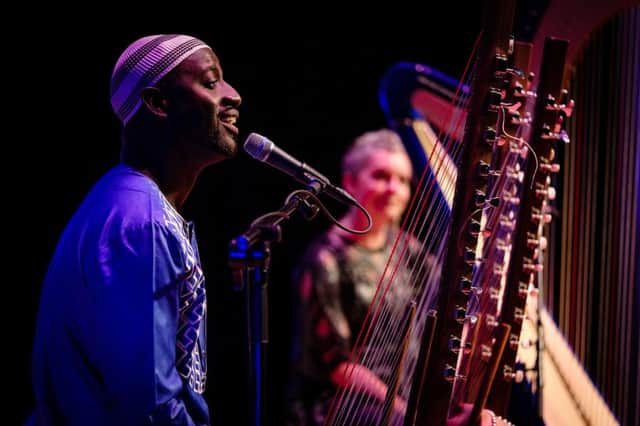Celtic Connections review: Catrin Finch and Seckou Keita, The Mackintosh Church, Glasgow


Catrin Finch and Seckou Keita, The Mackintosh Church, Glasgow *****
The complementary timbres – the big, rounded tones of European pedal harp and bright chatter and whirr of west African harp-lute – shifted between urgent cascades, tidal pulses and mesmerising riff-spinning. Their opener, the stately voyaging of Clarach, was inspired by the migration of ospreys from Wales to West Africa (overflying the frightened, upturned faces of migrants in crowded boats, heading the other way) and introduced Keita’s mellifluous Mandinka singing.
Advertisement
Hide AdAdvertisement
Hide AdIn a further entwining of worlds, Bach to Baïsso swirled the familiar aria of the Goldberg Variations into another realm altogether, while an elegy for a drowned Welsh village had Finch intoning in reproachful Welsh over murmuring strings: “Remember Tryweryn”.
The luscious pulses and lively percussive dialogue of 1677 seemed almost inappropriately joyful for its subject, an infamous slaving station, while the encore strains of Keita’s Bamba cast their benignly hyonotic spell right to the end.
Two brief but engaging opening sets also skipped across cultures and genres. The spirited flute, Hardanger fiddle and accordion of the Snowflake Trio morphed a familiar Irish slip jig into a spry Norwegian dance, while solo harpist Rachel Newton drew on Gaelic song and fairy folklore, but finished with her own heartfelt metamorphosis of Dolly Parton’s Jolene. - JIM GILCHRIST